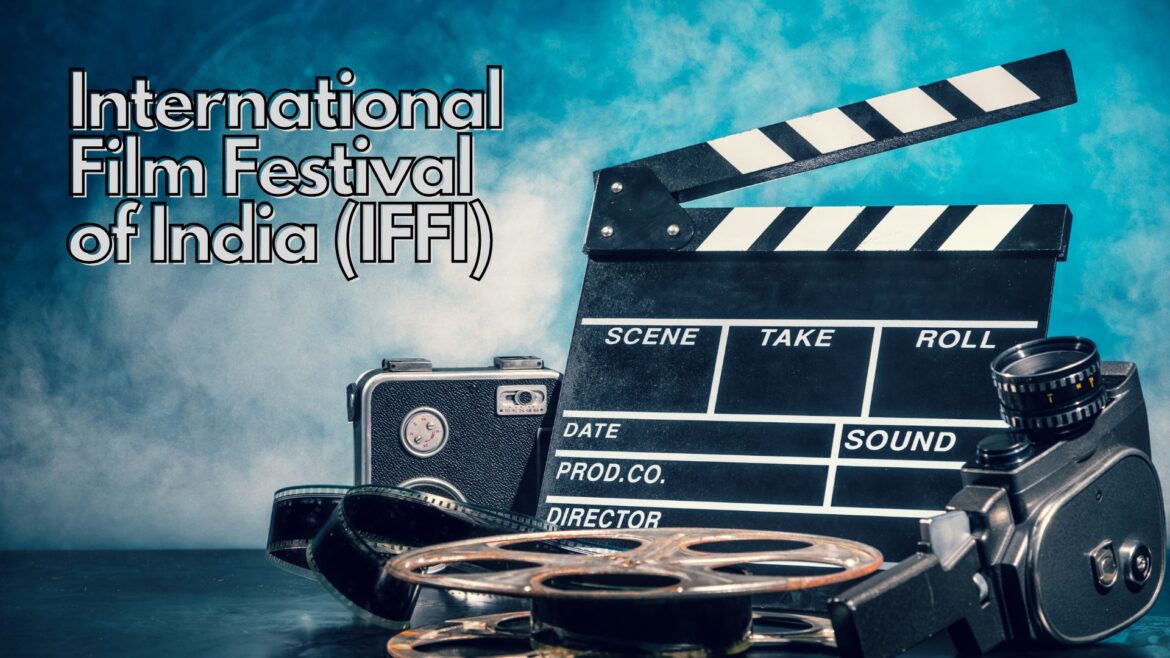Table of Contents
The International Film Festival of India (IFFI) is one of Asia’s oldest and most prestigious film festivals.
Since its inception in year 1952, it has played a significant role in celebrating global cinematic excellence and promoting the rich cultural heritage of India.
It was founded by Ministry of Information and Broadcasting, Government of India, in collaboration with the Film Division and other cultural organisations in Year 1952. The inaugural festival was held from January 24 to February 1, 1952, in Bombay (now Mumbai), then traveled to Calcutta (now Kolkata), Madras (now Chennai), and Delhi. The first IFFI featured 40 feature films and 100 short films from 23 countries, signaling India’s aspirations to be part of the global cinematic movement.
IFFI’s conception was rooted in India’s post-independence cultural renaissance. The 1950s marked a period when India sought to assert its identity on the global stage, and cinema was seen as a powerful medium for this purpose. IFFI was inspired by international festivals like Cannes and Venice, which showcased global cinematic artistry.
IFFI was based on the idea that cinema transcends boundaries and languages, acting as a universal medium to foster empathy, understanding, and dialogue.
Objectives and Vision
The vision behind IFFI was to create a bridge between Indian and international cinema. It was designed to:
- Celebrate the art of storytelling through films.
- Promote cultural diplomacy and dialogue between nations.
- Nurture young filmmakers by providing them exposure to global cinematic trends.
- Recognize cinematic talent and inspire innovation in the film industry.
- Promote India as a destination for cinema and cultural excellence.
The festival began as a non-competitive event but quickly gained international recognition. By 1965, it was accredited by the International Federation of Film Producers Associations (FIAPF) as a competitive film festival. The 1960s and 1970s saw the emergence of a parallel cinema movement in India, with films by directors like Satyajit Ray, Ritwik Ghatak, and Mrinal Sen gaining prominence at IFFI.
In 2004, Goa became the permanent venue for the International Film Festival of India. This decision was made to provide the festival with a fixed location that combined heritage, culture, and scenic beauty. Goa’s laid-back charm has since become synonymous with IFFI, attracting filmmakers, actors, and cinephiles from around the world.
General Highlights of IFFI
IFFI has embraced technology and global trends over the years. Some of the highlights of the International film festival of India event that takes place are –
- Digital screenings and virtual reality experiences along with open air screenings.
- Workshops, masterclasses, and panel discussions by industry veterans.
- Initiatives like 75 Creative Minds of Tomorrow to nurture young talent.
Some of competitions and honours of IFFI include:
- International Competition Section: Awards like the Golden Peacock for the Best Film.
- Indian Panorama: A platform to showcase the best of Indian cinema.
- Retrospectives and Tributes: Honouring legendary filmmakers and actors.
- Special Thematic Sections: Themes like environmental cinema, LGBTQ+ representation, and women-centric narratives.
Cultural Impact
- Global Recognition of Indian Cinema: IFFI has been instrumental in presenting Indian filmmakers to global audiences, fostering collaborations and co-productions.
- Tourism and Cultural Promotion: Goa’s association with IFFI has turned it into a hub for film tourism.
- Platform for Diverse Voices: It has amplified marginalized voices in cinema and encouraged stories from remote parts of India.
Challenges and Way Forward
Challenges:
- Balancing traditional and modern cinematic trends.
- Competing with other international film festivals.
- Adapting to rapid technological advancements in the industry.
Future Goals:
- Strengthen its position as a global hub for cinematic excellence.
- Introduce more innovative programming and initiatives for young filmmakers.
- Foster sustainable practices in festival organization.
The International Film Festival of India is more than just a cinematic event—it is a celebration of storytelling, a reflection of cultural richness, and a testament to India’s evolving film industry. Over the decades, it has grown from a modest festival to a globally recognized event, leaving an indelible mark on the world of cinema. With its rich legacy and forward-looking vision, IFFI continues to be a beacon for filmmakers and cinephiles alike.

